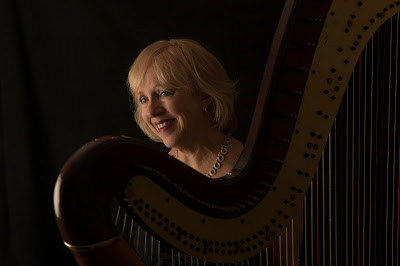The Composer’s Wife: Remembering Marian MacDowell (1857-1956)
She was born Marian Griswold Nevins on
November 22, 1857, the feast day of Saint Cecilia, the patron saint of
music. Music was her gift. Like many young women of her time and
station, she traveled abroad to study piano.
In Frankfurt, Germany, she met a brilliant young American three years
her junior, Edward MacDowell. She became
his student. Love and marriage
followed. And Marian gave up any hope of
a career in music to support her husband in his fledgling career as a
composer.
In all likelihood, Marian MacDowell
would have remained in the shadow of her celebrated husband. But in 1905, Edward MacDowell fell ill,
stricken with a debilitating nervous disease.
For some time the couple had considered how they could help the cause of
young artists in America. They had
talked of turning their farm in Peterborough, New Hampshire, into a working
retreat, a woodland sanctuary that offered inspiration and the peaceful
seclusion so necessary for productivity.
Now, with Edward failing rapidly, Marian consoled him with her
promise to carry out their plan. She was
fifty years old when her husband died in 1908.
She spent the rest of her life—another forty-eight years— building the
dream that became known as the MacDowell Colony.
With no great personal wealth, Marian MacDowell revived her long abandoned piano career and took to the road. For twenty-five years, she toured the country annually, lecturing on the colony and playing MacDowell's music like no one else could. She promoted the colony as an investment in the arts in America, rallying her late husband's supporters and admirers, and harnessing the power of the nascent women's club movement, a driving force for social change during the Progressive Era. She left in her wake a network of MacDowell Clubs that guided the artistic lives of their local communities and became the base of the colony's support. From small towns like Brinkley, Arkansas and Fort Dodge, Iowa, to major cities, including New York, Chicago, and Los Angeles, more than 400 MacDowell Clubs were established across the United States before World War II.
Marian
MacDowell’s unique brand as the composer’s wife was by design, a carefully
crafted persona she maintained as the public face of the MacDowell Colony. Always billed as “Mrs. Edward MacDowell,” she
played MacDowell’s music exclusively, becoming the foremost interpreter of her
husband’s works during her lifetime. She
was a gifted teacher, and piano students sought her out. Her concerts and teaching kept MacDowell’s
music relevant long after it might otherwise have fallen from favor, and
ensured a steady stream of income from copyright royalties. As the wife of the eminent composer, whose
tragic, slow death stirred the sympathy of the nation, widowhood not only
commanded respect, it conveyed an authority that opened doors. Marian reinvented herself after the death of
her husband, styling herself the matriarch of a nation-wide movement in support
of American artists.
The continued
success of the MacDowell Colony is a testament to the vision and tenacity of
its founder, Marian MacDowell. Today considered
the gold-standard among artist colonies, a MacDowell Colony residency is a
highly coveted and career-enhancing honor.
For more information on Marian
MacDowell, the history of the MacDowell Colony, and related collections and
resources at the Library of Congress, see “The House That Marian Built: The MacDowell Colony of Peterborough, New
Hampshire” in the online portal American Women: A Gateway to Library of
Congress Resources for the Study of Women’s History and Culture in the United States: https://memory.loc.gov/ammem/awhhtml/aw08e/aw08e.html .
For more on
women’s philanthropy and the MacDowell Colony, see “Women with a Cause: The
Creation of The MacDowell Colony” in The Maud Powell Signature, Women in
Music, June 2008: http://www.maudpowell.org/signature/PreviousIssues.aspx .
.





Comments
Post a Comment